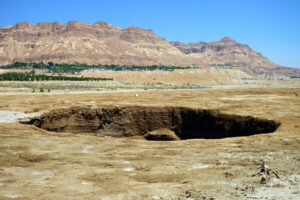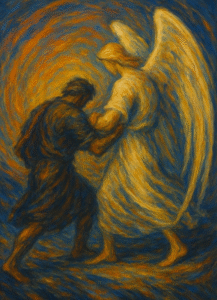HITBODEDUT: WHEN AND WHERE?
Where? How? And how much? All the answers to the questions that come to your mind about the most fascinating subject in the soul – the hitbodedut!
Set aside an hour (or more) each day to meditate in a room or in the fields. While there, speak out whatever is in your heart, with words of grace and supplication. These words should be in the language you normally speak, so that you will be able to express yourself as clearly as possible. When you entreat God in the language you are used to, the words are closer to your heart and will therefore flow more easily (Likutey Moharan II, 25).
Concerning the recitation of optional prayers, our Sages say: “If only a person were to pray the entire day” (Berakhot 21a). Rebbe Nachman said that it would be very great if we could actually practice hitbodedut the entire day. Yet for the majority, this is an impossibility. Most people should therefore set aside at least an hour a day, but those individuals who are very strong in their service to God should spend more time in hitbodedut (Likutey Moharan II, 96).
The ideal time for hitbodedut is at night, when the world around you is asleep. During the day, people are busy rushing after all the material and physical pleasures of this world. This is a distraction and hindrance for anyone wishing to serve God, even if he himself is not occupied with anything other than spiritual pursuits. Thus the best time for hitbodedut is in the middle of the night, when the desires and lusts of this world are at rest (Likutey Moharan I, 52). Although the night time is the best time, every time is a good time. If you can’t get up in the middle of the night for hitbodedut, how about trying to find the time to converse with God in the early morning, either before or after the morning prayers – before you get caught up in the rush of yet another busy day? And if that’s no good, then really any other time is alright. Whenever… wherever… just remember: the quieter the better.
Rebbe Nachman said that it would be very great if we could actually practice hitbodedut the entire day!
The main factor is consistency. Rabbi Avraham Chazan use to say: Hitbodedut which is consistent (every day) is thousands upon thousands of times greater than hitbodedut that is interrupted. On another occasion he remarked: On a day when a person goes without hitbodedut, he’s taught a “chapter of heresy” by the Evil One (Rabbi Eliyahu Chaim Rosen).
Regarding where to practice hitbodedut, Rebbe Nachman taught that it’s best to find a location which is conducive to meditation and which will allow you to concentrate on your words undisturbed. A private room is good, a park better, out in the fields or forests still better. In short, the quieter and more secluded the place is, the more ideal it is for hitbodedut.
In the fields. Rebbe Nachman teaches: Just as the day is less conducive for hitbodedut than the night, the city is less conducive than the fields. The city is a place where people chase after “this worldliness,” so that even when they are not actually present, the tumult and turmoil they create remains and disturbs one’s meditation. This is why the best place for meditation is out in the fields, where the confusing influences of the day and this world are at a minimum (Likutey Moharan I, 52).
Know! When a person meditates in the fields, all the vegetation join in his prayer and increase its effectiveness and power (Likutey Moharan II, 11). Rebbe Nachman was once walking through a grassy meadow when he said to the person accompanying him, “If only you could hear and understand the language of the grasses. Each blade of grass sings its praise and prayers to God” (Rebbe Nachman’s Wisdom #163).

Hitbodedut: Whenever… wherever… just remember: the quieter the better!
In Rebbe Nachman’s time, most cities and towns were quite small. Going out to the surrounding fields and forests presented little problem. Today, anyone living in a village or small town can still take advantage of this, however, most people live in a metropolis and find it quite difficult to get away from the city’s confines. An alternative might be to use a nearby park. [As for entering fields and parks, Rebbe Nachman taught that one needn’t be fearful of the dangers involved in praying in the fields at night, because praying to come closer to God is a great mitzvah and “messengers of mitzvot will not be visited by harm” (Pesachim 8b). Also, the dangers of falling into the hands of the “forces of evil” are far greater than those of entering a forest to meditate. It should be made quite clear, though, that this does not include places like New York’s Central Park, where one’s life is in danger even during the day. Regarding this, the law is most clear: we must not relay upon miracles (Pesachim 8b).]
…or at home. But, what if you can’t go to a park? Or what if you find that whenever you do go, you find yourself concerned for your safety and cannot concentrate on the task at hand? Rebbe Nachman said that it is very good to have a special room set aside for Torah study and prayer. Such a private room, office or study is especially beneficial for secluded meditation and conversation, with God. You can also practice hitbodedut under your talit. Just drape the talit over your head and converse with Him. This way, you can have your privacy and meditate, even when the room is filled with people. You can also seclude yourself with God while in bed under your covers. Kind David did this, as he describes (Psalms 6:7), “Each night I converse from my bed….” Or, you can converse with God while sitting in front of an open book. Others will think that you are studying and in this way you will have the privacy to speak your heart out to Him (Rebbe Nachman’s Wisdom #274-275). Another possibility is to practice hitbodedut while walking. The Rebbe himself did this (cf. Tzaddik #7). There’s no reason to have to wait until you get to your destination in order to begin getting closer to God.
One of Rebbe Nachman’s followers was complaining to him about the difficulties he had in serving God properly. The man blamed this on his house being too crowded and not having a private room for his devotions. The Rebbe answered him: “Presumably, if God agreed that the only possibility of your serving Him depended on your having such a room, He would have already given it to you!” (Tzaddik #588). So, we have to make the effort to have hitbodedut whenever possible and wherever possible. God will eventually provide us with the right time and place.
(Taken from the book Crossing the Narrow Bridge: A Practical Guide to Rebbe Nachman’s Teachings chapter 9 – Hitbodedut)
- Chaim Kramerconnect to Godconnecting to Hashemconnecting to the tzaddikCrossing the Narrow BridgedifficultiesemunahfaithfeaturedhappinessHitbodedutinspirationJewish spiritualityjoyLikutey HalachotLikutey Moharanmeditationpersonal prayerprayerReb NosonRebbe Nachmanserving GodsoulTorahTzaddikTzaddikim
- 0 comment






















